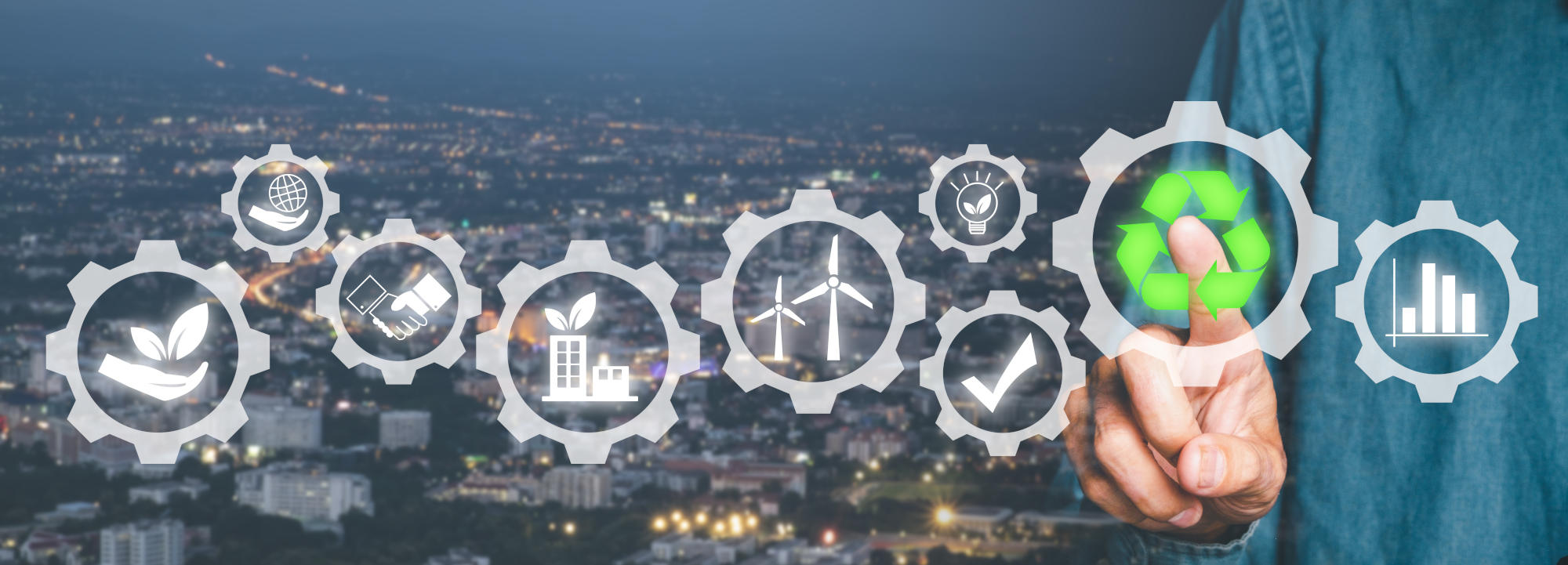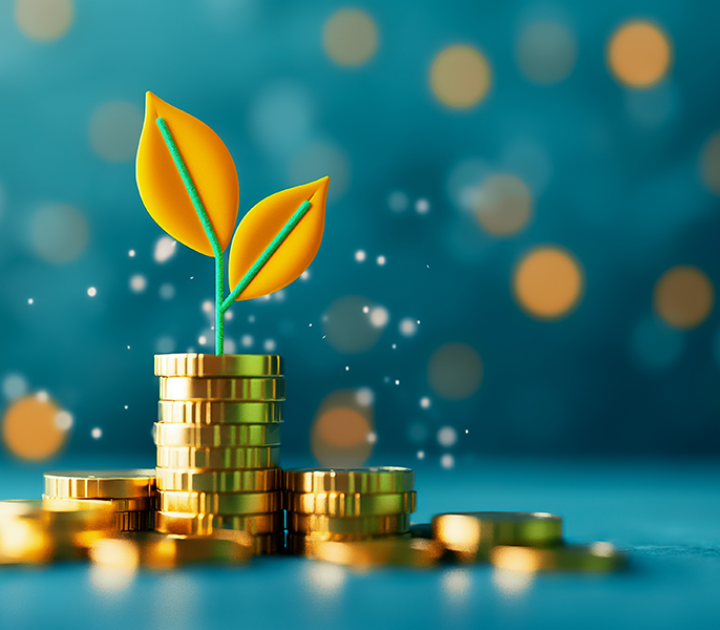Accelerating transitions to sustainable business models after COVID-19

With the proliferation of so many buzzwords around sustainable business models and social and environmental impact, executives and financial decision makers are increasingly looking for a roadmap to navigate the impact economy and post-COVID world.
World economies have suffered greatly from the COVID-19 crisis and issues such as poverty, inequality and other social issues have affected economic outcomes. Yet despite the massive destruction that the crisis caused, a silver lining can be found in this pause in human activity, dubbed the “Anthropause”.
“The environment flourished, and we now have the chance to build back better,” said elea Professor of Social Innovation Vanina Farber, who led the webinar. “So, in the ‘with COVID’ world, we need to change the way we do business. The idea of indefinite growth without thinking about the boundaries of the planet is not possible anymore.”
As businesses look to ramp up their operations after the crisis, there is a unique opportunity for executives to sharpen their focus on making their business models more resilient and sustainable, and catalyze social and economic change. In part thanks to innovative financial instruments, corporations can speed the pace and increase the scale at which they bring sustainability into the core of their strategic choices.
More than two-thirds of webinar participants agreed that corporations are serious about this transformation. However, key barriers remain such as: balancing sustainability with growth targets, difficulty quantifying potential ROI, financing the transformation at scale, lack of attention or support from leadership, difficulty identifying the key ESG issues to focus on, and the volatility and complexity of regulatory requirements.
Many corporations are now moving beyond a profit-only lens to think about the impact of their business models on society. “Beginning with boycotts of South Africa and companies doing business there in the 1990s to push the end of Apartheid, there has been a steady push toward investing with intentionality,” said Farber, who walked through the range of options available to invest for impact through private market vehicles and invest with impact through public market vehicles.
The purpose of the webinar was to understand how corporates can leverage impact investing and sustainable finance to support their business model transformation around sustainability. Here, corporations can increasingly draw from a wide menu of options presented in the webinar. From engagement with social enterprises to co-create innovative and sustainable products to securing funding for specific green projects through green (or sustainable) bonds, firms can leverage the experience and expertise of diverse actors to transition.
Transitioning to a sustainable business model is also increasingly a priority for firm survival. Average company lifespans on the S&P index are decreasing; in 1960 it was 60 years, while by 2020 it was only 20 years. By addressing material ESG issues, firms can tackle both innovation and sustainability challenges simultaneously.
To ensure financial returns with these types of corporate investment strategies, Farber suggests analyzing how ESG materiality can impact the bottom line. There is some evidence that by focusing on material ESG concerns, companies can grow their share prices and expect better portfolio performance.
Investors are also starting to exert pressure, pushing for companies transform their business models. Through proxy voting, activist investors have been able to elect three board members to Exxon. Activist investors’ engagement with public companies through shareholder meetings is poised to grow in the coming years.
With the expanding range of possibilities to kickstart the transition to sustainable business models, executives have a chance to increase collaboration with investors, NGOs, civil society, and entrepreneurs toward the cocreation of a sustainable future. COVID-19 might just be the final push that was needed for us to collectively realize that business can, and must, change to become more resilient, vibrant, and just. The time is right, now.
Research Information & Knowledge Hub for additional information on IMD publications

Subsidies of renewables has led to electricity prices frequently falling to less than zero leading to opportunities for consumers

Once corporate activists, today’s CSOs are business integrators. 6 ways the CSO role is evolving: strategist, risk mitigator, innovator, regulator, storyteller, and leader.

AI is revolutionising industry by improving efficiency and driving sustainability. Discover how data-driven insights shape a greener future

Switzerland should assess the Credit Suisse collapse before adding more banking regulations, says UBS Group CEO in a talk on Europe's financial future.

CFOs can rethink underperforming AI adoption by focusing on business value, data readiness, and employee buy-in.

Chanel Global CFO and IMD Executive in Residence Philippe Blondiaux explains how finance leaders can sustain a long-term focus on sustainability while addressing short-term challenges.

Discover a framework for Responsible Leadership, guiding you to lead with care and ethics in an increasingly turbulent and complex world.
The case examines the entrepreneur-led carve out and buyout of dss+, DuPont’s safety and sustainability consulting division, by Gyrus Capital and dss+ management team. dss+ (formerly “DuPont Sustainable Solutions”) played a pivotal role in high-ri...

The need to protect nature is a challenge for all companies. But do you know the potential business benefits of a successful biodiversity strategy? Take this short quiz to test your knowledge of the issue, and read on for a five-step guide to gett...

Leaders, strategists, and decision-makers can play a pivotal role in integrating sustainability into business strategies – and make money in the process. Knut Haanaes, Bryony Jansen van Tuyll, and Øystein D. Fjeldstad outline five steps to make it...
Research Information & Knowledge Hub for additional information on IMD publications
in I by IMD
Research Information & Knowledge Hub for additional information on IMD publications
in I by IMD
Research Information & Knowledge Hub for additional information on IMD publications
Research Information & Knowledge Hub for additional information on IMD publications
Research Information & Knowledge Hub for additional information on IMD publications
in I by IMD
Research Information & Knowledge Hub for additional information on IMD publications
in I by IMD
Research Information & Knowledge Hub for additional information on IMD publications
Case reference: IMD-7-2639 ©2025
Research Information & Knowledge Hub for additional information on IMD publications
in I by IMD Brain Circuits 24 February 2025
Research Information & Knowledge Hub for additional information on IMD publications
in I by IMD Brain Circuits 17 February 2025
Research Information & Knowledge Hub for additional information on IMD publications

